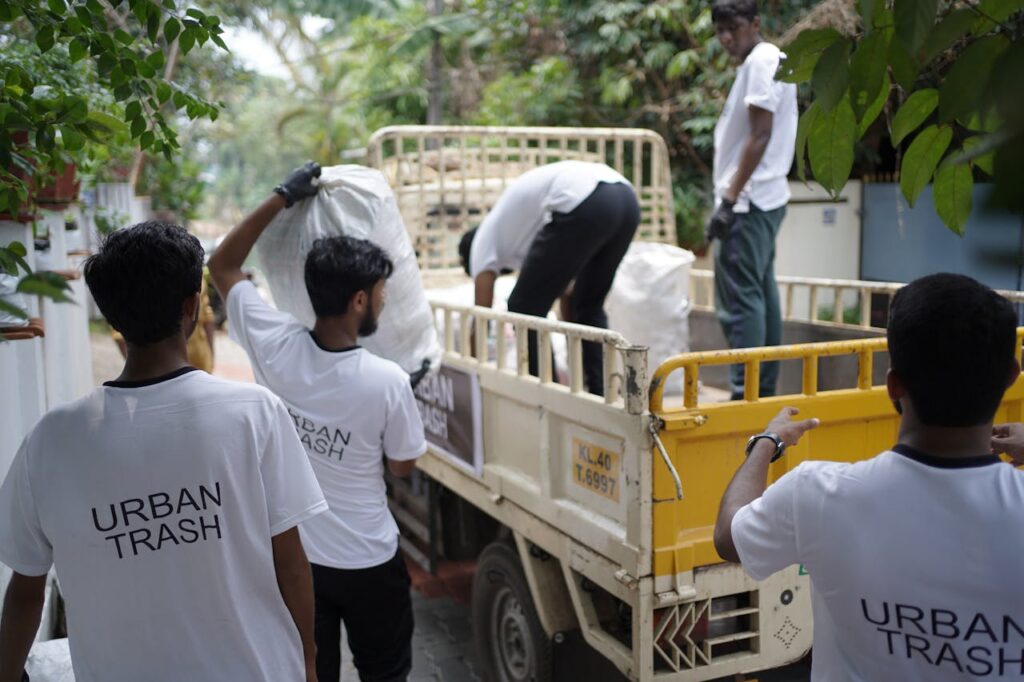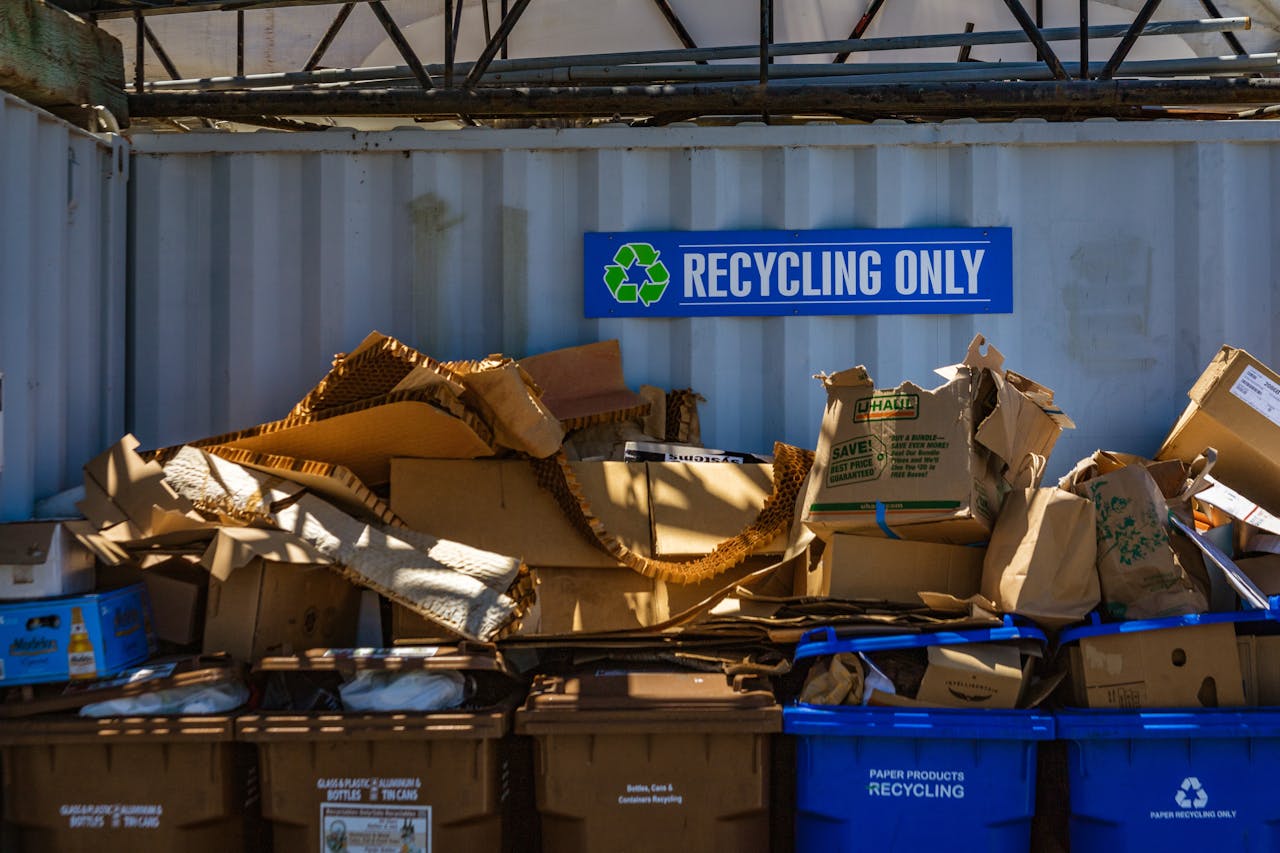Urban Waste Management: Reducing the Ecological Footprint
Population expansion in cities has rendered urban waste management into a growing crisis.
The swift increase of urban population has triggered significant waste production which creates overwhelming pressure on landfills together with recycling installations and waste processing systems.
The improper handling of waste creates depletion of natural resources as well as air pollution and both GHG emissions and health risks for people.
Waste management strategies which work well represent a vital solution to minimize environmental degradation as they lead toward sustainable development.
The blog examines urban waste management difficulties and environmentally friendly approaches with technological innovations that generate more sustainable urban environments.
Challenges of Urban Waste Management
Daily waste gathering in urban areas includes inhabited garbage combined with manufacturing waste as well as discarded electronic items.
To solve this problem authorities must invent new strategies that match technological expansions and increase public education about waste disposal issues.
1. Rapid Waste Generation and Overloaded Landfills
Metropolitan populations experience difficulties managing their substantial amounts of waste because of accelerated consumer-based development combined with city expansion.
Exponential landfill fill-up has progressed to a situation where people dump waste unlawfully creating environmental damage in the process.
The insufficient development of waste disposal systems behind growing populations has created a worsened waste management crisis.
2. Inadequate Recycling and Waste Segregation
Lack of appropriate waste segregation systems in cities results in inadequate recycling performance.
Landfills receive too many recyclable materials since processing and sorting facilities are not sufficient to deal with the waste stream.
Waste segregation education levels among the public must increase to simplify recycling projects.
3. Pollution and Health Hazards
The practice of disposing waste improperly produces pollution throughout the atmosphere, water sources and underlying soil.
The combination of open dumping and waste burning processes releases harmful toxins which bring about respiratory health damage in addition to multiple other health conditions.
Plastic waste, in particular, poses a severe threat to marine life and ecosystems.
4. Electronic and Hazardous Waste Management
The rise in electronic product markets resulted in a major increase of e-waste containing dangerous substances such as lead, mercury and cadmium.
These hazardous substances create environmental contamination that threatens human health whenever improper disposal procedures are not used.

Sustainable Solutions for Urban Waste Management
The reduction of waste-generated environmental destruction requires cities to establish sustainable waste management approaches.
The implemented solutions aim to reduce waste while promoting recycling alongside new treatment approaches.
1. Implementing Waste Segregation at Source
For proper waste management systems effectiveness it is essential to encourage separate waste collection from households and businesses between biodegradable waste and recyclables and non-recyclables.
Governments should create strict waste segregation regulations and benefits to enhance recycling performance rates.
2. Promoting the Circular Economy
The circular economy functions through the process of material recycling alongside material reusability and maintenance repairs.
New resource management procedures prevent resource exhaustion and decrease the need for landfill spaces.
Businesses that choose sustainable packaging should get customer support from those who prioritize brands that use recyclable materials.
3. Advanced Recycling Technologies
The efficiency of waste processing models can be strengthened by AI-driven sorting and chemical recycling techniques that advance the technology.
Sweden together with Germany shows successful deployment of their advanced recycling technologies that contribute to their notable recycling performance.
4. Composting and Organic Waste Management
Organic waste together with food waste constitutes an enormous percentage of urban waste materials.
Through composting processes cities stop methane from escaping landfills while creating valuable agricultural soil from waste material.
Communities throughout cities should launch composting operations for groups and offer programs that support home-based composting.
5. Waste-to-Energy Solutions
Waste-to-energy operations utilizing incineration together with biogas creation and pyrolysis enable cities to handle waste in an environmentally friendly way while producing electricity.
Through waste-to-energy operations cities both create energy for renewable use and lower their reliance on landfills.
6. Reducing Single-Use Plastics
Urban areas face plastic contamination which has emerged as a major environmental problem.
The decrease of plastic waste becomes attainable through either complete bans or financial penalties on single-use plastics.
Biodegradable along with reusable alternatives should be promoted through policies as an important solution to minimize waste accumulation.
The Role of Technology in Waste Management
Urban waste management has transformed because of new technology which delivers higher efficiencies alongside sustainable practices.
1. Smart Waste Collection Systems
Smart sensors along with IoT-enabled waste bins assess waste levels which helps minimize visits that are not needed to dumpsters for collection.
Smart waste management technology increases operational performance levels and minimizes organizational spending costs.
2. Blockchain for Waste Tracking
Through blockchain technology, operators achieve clear waste tracking visibility that helps prevent illegal disposals while maintaining proper disposal measures.
Blockchain enables businesses and public entities to track waste movement as well as promote accountable waste management approaches through its monitoring capabilities.
Conclusion
Cities face an active problem in waste management that needs decisive action for lesser environmental degradation and sustainability development.
A combination of effective waste reduction practices and advanced recycling infrastructure enhancement with modern technological solutions will create better waste management systems for cities.
Every sector from public institutions to companies and individual citizens needs to adopt measures for waste reduction to establish sustainable circular economic practices.
Future generations need a collective action to protect urban areas against environmental damage while sustaining their livability alongside health and responsibility toward the environment.
FAQ
1. What actions do individuals need to take for better performance in urban waste management?
Waste segregation practices combined with decreased usage of disposable plastics and organized composting of organic waste and recycling program backing represents the contributions of individuals for better urban waste management.
Small regular activities like carrying reusable bags and handling electronic waste correctly lead to substantial positive changes in urban waste management.
2. Are there environmentally positive effects when people recycle?
The recycling process lowers the need for extracted materials while saving energy usage and creating less waste within landfills.
Emissions of carbon remain lower when resource extraction and manufacturing activities become unnecessary.
3. How can cities encourage businesses to adopt sustainable waste management practices?
Cities should establish benefit programs including tax advantages and financial assistance which apply to firms implementing waste reduction systems and adopting green packaging while minimizing their waste creation.
Waste management practices of businesses must be accountable under strict regulations and extended producer responsibility (EPR) policy frameworks.

